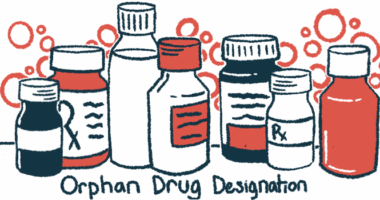Phase 2 trial planned for IRX4204, targeting neuroinflammation
Oral therapy showed safety in studies in Parkinson's and cancer patients

Io Therapeutics is planning to launch a Phase 2 trial into its investigational oral therapy IRX4204 in people with amyotrophic lateral sclerosis (ALS).
The decision follows recent tests showing that the candidate treatment dampened neuroinflammation in an animal model of neuronal autoimmunity, or diseases marked by self-directed attacks on the nervous system, and earlier studies demonstrating it was safe in people with certain cancers and neurodegenerative conditions.
Data were described in the presentation “The RXR Nuclear Receptor Agonist Compound IRX4204 is a Potential New Treatment for Amyotrophic Lateral Sclerosis,” given at the recent ALS Nexus conference. It was shared by Vidyasagar Vuligonda, PhD, Io’s chief science officer and inventor of IRX4204, and Martin E. Sanders, MD, the company’s CEO.
IRX4204 aims to restore balance to a person’s immune system
“IRX4204 has already been demonstrated to be safe and well tolerated when administered to humans,” Sanders said in a company press release. “It has potential to be an effective treatment for slowing the progression of disability and delaying mortality.”
Io is planning “to advance IRX4204 into clinical trials in ALS patients, to evaluate its potential to be a safe and effective treatment for this currently inadequately treated, highly burdensome, and uniformly fatal disease,” he added.
Immune dysfunction in the brain and spinal cord plays a role in the development and progression of ALS, a neurodegenerative condition marked by a loss of the nerve cells that control muscle movement.
While the exact mechanisms that cause ALS are not fully understood, inflammation is believed to play a vital role in driving the disease. Patients generally have an overabundance of pro-inflammatory cells, such as T-helper 17 cells (Th17), while levels of immunosuppressive regulatory T-cells (Tregs) are lower than normal.
IRX4204 works by activating retinoid X receptors, which regulate the activity of specific genes involved in inflammation and certain metabolic processes.
According to Io, the therapy promotes the growth of Tregs, prevents the differentiation of Th17 cells, and blocks the production of pro-inflammatory immune signaling proteins. By restoring immune balance, it is expected to slow neurodegeneration.
In preclinical studies, IRX4204 effectively blocked neuroinflammation in healthy mice given Th17 cells from animals with autoimmune disease. It also promoted the growth of cells that produce myelin, the fatty substance that surrounds nerve fibers, and demonstrated myelin repair in mouse models of demyelination.
The therapy also showed promise in animal models of other neurodegenerative diseases, including multiple sclerosis, Parkinson’s disease, and Alzheimer’s disease.
In Phase 1 and 2 clinical trials, IRX4204 was deemed safe in 85 patients with various cancers and 15 with Parkinson’s disease. Up to 20 months of treatment improved motor function in Parkinson’s patients, Io reported.
“Our results identify a new approach to potentially treating ALS by inhibiting multiple pathophysiologic processes with IRX4204, including autoimmune neuroinflammation, demyelination, and neuronal death,” Vuligonda said.







